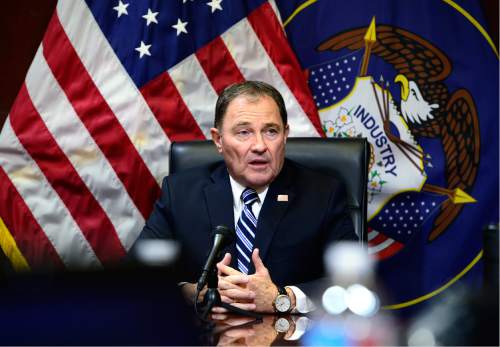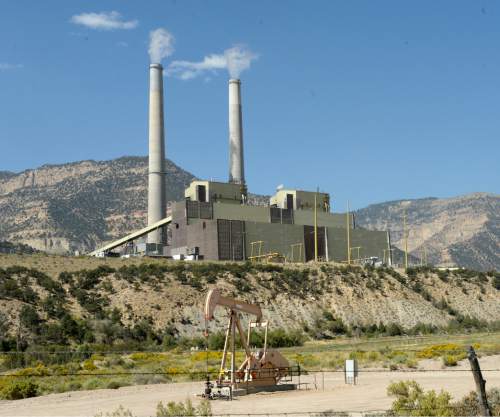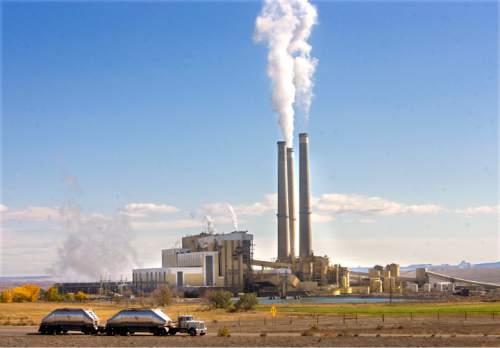This is an archived article that was published on sltrib.com in 2016, and information in the article may be outdated. It is provided only for personal research purposes and may not be reprinted.
Gov. Gary Herbert announced Thursday morning that he has suspended the development of Utah's clean-power implementation plan — a sudden reversal of the state's previous strategy.
Utah is one of 27 mostly conservative-led states to challenge the Environmental Protection Agency's Clean Power Plan, which would limit emissions from power plants, especially coal-fired power plants, and is seen as key to making President Barack Obama's promises to reduce the nation's carbon footprint a reality.
State environmental officials have said repeatedly that Utah would take a two-pronged approach to the plan: pursuing legal action against it while also, just in case, developing the required proposal to cut carbon emissions about 30 percent by 2030.
Utah's Department of Environmental Quality began working with stakeholders to develop a draft plan in February; those talks are on hold.
Cody Stewart, the governor's energy adviser, said the change of position came in light of the U.S. Supreme Court's decision to place a stay on the implementation of the Clean Power Plan, pending legal resolution, and in light of the increased instability caused by the death of Justice Antonin Scalia.
"There's a lot of uncertainty about what's going to happen and in what time frame," Stewart said.
Stewart said some took the Supreme Court's stay as a sign that the court could rule the Clean Power Plan to be unconstitutional, but he believed that would be reading too much into the decision. And with the Supreme Court now split between the more conservative and liberal justices, the outcome is even more uncertain, he said.
In a statement, the governor said moving ahead with planning during such uncertainty would not be a judicious use of state resources.
"It is important to utilize limited state resources efficiently, and it does not make sense to dedicate significant staff time or taxpayer dollars to comply with a rule that may not survive judicial scrutiny," he said. "The state remains committed to an energy future that is affordable, reliable and cleaner."
Shane Levy, deputy press secretary for the Sierra Club, said the environmental organization was disappointed by the governor's decision.
"We're confident the Clean Power Plan will be upheld, and strongly believe developing a plan in Utah provides the best path forward," he said. "Utah was late in starting the stakeholder process, compared to other states. The idea that they will suspend continued progress will only put Utah at a significant disadvantage to comply."
The Supreme Court stay put on hold the Clean Power Plan's September 2016 deadline for the first drafts of state implementation plans, removing the need for Utah to prepare to meet that deadline, Stewart said.
This particular outcome was especially disheartening to Salt Lake City officials, said Vicki Bennett, director of the city's office of sustainability.
"The group was very invested and interested in working on the plan," she said. "It would be nice if we could continue the discussion."
Salt Lake City was one of 19,000 U.S. municipalities to sign a letter of support for the Clean Power Plan. Bennett said the city did so in hope of forestalling a stay.
The Clean Power Plan doesn't affect Salt Lake City directly, Bennett said.
"But I do think it would be good for the citizens of the state," she said, "to plan to reduce emissions from all of the sources we have here."
epenrod@sltrib.com Twitter: @EmaPen







